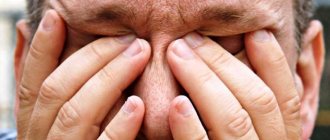Help with stress and after stressful effects on the human psyche requires special, individual solutions. This is due not only to the individual characteristics of the formation and formation of the nervous system. It is necessary to take into account the characteristics of a person’s environment, his usual environment, habits and social factors.
Help with stress - hotline +74951350109
Call us, we help in the most difficult situations. Our treatment is selected strictly individually and does not disrupt the usual rhythm of life. We use the latest developments in restorative therapy. Our therapeutic programs always work!
Why do you need help with stress?
Stress is a destructive reaction of the body to a conflict between objective and subjective reality. Essentially, this is a protective reaction of the body. However, this can seriously harm a person’s mental functioning.
Every day a person experiences the influence of various physical and mental factors. Life is a process, something is constantly changing in it. And our mental activity is aimed at integrating new elements into our reality. We do this every second. A healthy personality quickly and constructively brings subjective and objective factors into line, maintaining the overall picture of the world. This is called in society a complete personality.
The consequences of stress can form more complex mental disorders. This is due to the fact that at the time of stress the brain works in overload mode. A breakdown of higher nervous activity may occur, even with a change in the metabolic processes of the brain. Therefore, qualified help with stress is necessary for almost every person.
Causes of stress
Our comfort zone is maintained only when there is consistency between the internal and external. But it happens that several new factors appear simultaneously and they resonate, or one factor arises, but it is very significant. In this regard, a person becomes unable to quickly navigate the situation and bring it into line with his internal understanding of the world. And then unresolved conflict leads to stress.
Why don't wild animals have similar experiences?
An animal does not divide things into objective and subjective, it has no duality and, accordingly, no internal conflict arises. In any situation, it does everything that depends on its physical abilities: it can run away or bite an enemy, get away from the cold, and direct all its strength to search for food and water. The beast unambiguously assesses the surrounding situation, its strengths and place in the social hierarchy, since it relies on its experience, and not on logic (abstract mind). He does not discuss why he is at the bottom of the hierarchical ladder, but tries to make his way to the top through certain rituals and fights with his fellow tribesmen.
Man is a more developed being. He has an idea of an ideal (often imposed) and his own individual needs. It is also limited by cultural and moral frameworks: norms, rules, prohibitions, requirements, established etiquette, duty to loved ones or the Motherland, psychological oppression, etc. All this, from time to time, leads to a conflict of interest. The child wants to go to the toilet during class, but is afraid of a strict teacher or has a fear of making a public statement. He endures and does not raise his hands.
Stressors: Holmes and Ray model
“What will happen to him! Look how he holds up!” - this can be said about any unfamiliar person, and then you are surprised to find out that he is trying his best and has already suffered 2 heart attacks. Based on the time of action, psychogenic factors of CVD are divided into mental trauma and psychotraumatic situations. Injuries occur suddenly, a person is at the mercy of emotions and often does not have time to adapt (acute stress). Psychotraumatic situations exist for a long time, sometimes for years. At some stage, a person can adapt to them, but over time, compensatory mechanisms are exhausted. The disease develops.
How can you assess the strength of the negative influence and the body’s resource? According to the importance of the operating factor, life situations are assigned different numbers of points. In 1970, American psychiatrists T. Holmes and R. Ray analyzed people's reactions to significant events, ranked them and compiled a scale of stressors. The list includes not only obvious disasters, but also a large number of “ordinary” events and situations. The ten most important situations are listed below in descending order:
- death of a spouse or other closest person;
- divorce of spouses;
- separation of spouses (in marriage);
- imprisonment;
- death of one close family member;
- illness (injury);
- marriage;
- dismissal;
- reconciliation of spouses;
- termination of work upon retirement.
Fewer points are “given” for changing jobs, vacations, pregnancy, fines for minor offenses, and changing habits. In the Holmes and Ray scale there are only 43 event points that can pull the rug out from under your feet.
To assess the resource and likelihood of developing a nervous or psychosomatic disorder, the authors of the theory recommended noting the events that a person experienced during the year and summing up the points. A high score on the Holmes and Ray scale indicates that the subject has exhausted his resources and needs immediate help.
Does your child need help with stress?
The child has a conflict between his objective knowledge that going to the toilet is quite accessible and easy, and the distortion of upbringing due to his subjective attitudes. He has to make a decision: wait until the end of the lesson and admit that he is a weakling, or openly declare his need in front of the whole class. If he continues to rush between two decisions, psychological pressure arises.
Let's take another situation - an incurable disease. Ideally, in case of an incurable disease, the brain rearranges its activity to cope with the situation: it produces painkillers (pain, as a protective factor, is no longer needed by the body) and gradually prepares the body for dying, gradually turning off the body’s organs. Or he decides to fight for life at any cost, and then the body also begins to produce all the necessary healing factors for recovery.
But, it is necessary to remember that the child’s nervous system is not yet strong and large stress loads can upset the biological balance. That is why helping a child with stress is just as, or perhaps even more, necessary.
What happens during stress?
What actually happens, given the culture formed in a real society? In the first case, a terminally ill person (if he accepts the fact of a fatal illness) begins to blame the doctors and undeveloped technologies that missed diagnosing the disease at an early stage; a feeling of injustice arises towards himself: fate and God. He is sure that he could have lived longer if not for this injustice. This is where suffering comes from.
Now let's look at a patient with the second type of reaction - his own belief in recovery. Such a person begins to fight for his life, actively uses the discoveries of scientific medicine, alternative methods of treatment, and rebuilds his worldview in a new way. And then he faces resistance from society. Doctors stubbornly tell him about the final stage of the disease, his relatives are sorry, but refuse to help him, their own knowledge and descriptions of the disease in the literature also describe his immediate care. There is a conflict between one’s own needs and the knowledge of society. You need to have considerable fortitude to maintain balance and continue to fight until victory. More and more such stories are appearing in medical practice, literature and Internet sources.
A conservative, rigid person is more susceptible to stressful situations than a dynamic and flexible person. It is difficult for him to accept the fact of the new, and in his reality there is a gap between his world and the “world outside.” This refers to personal stress factors.
Possible stress factors
- Psychological (emotional, traumatic and informational)
- Physiological
- Short-term and chronic
- Eustress and Distress.
Emotional - associated with the experience of strong emotions. It does not matter whether these emotions are positive (eustress) or negative (distress). Help with this type of stress: leaving a stressful situation: you need time to let your emotions cool down and calm down.
Post-traumatic or, more correctly, post-traumatic stress disorder is a painful condition after experiencing a traumatic situation (tragic loss of loved ones, being in a war zone, disaster, rape, direct threat to life, etc.) Help for post-traumatic stress includes drug therapy, restorative procedures , in-depth psychological study of residual phenomena, training in self-regulation and relaxation, working with emotions.
Information is associated with factors of extreme impact of the educational process or professional activity (the so-called operator’s disease), when a person’s cognitive functions are overloaded with a large flow of new information. The first aid for information stress is to change the environment and type of activity: visit a museum, play sports. Equally important is the transition to independent work in the educational or production process, without outside control.
Physiological - manifests itself when a person is exposed to unfavorable physical factors: heat, cold, hunger, thirst. This can be seen in the example of fasting as a method of losing weight. Instead of the body using stored fat deposits, it blocks access to reserves. This is a response to an external stress factor. Such women complain about weight stabilization and the lack of weight loss effect from a starvation diet. At the same time, tension, irritability and emotional instability appear. The main help for stress associated with exposure to physical factors is to eliminate the factor itself. A change in attitude towards it, general strengthening procedures and the development of tolerance to physical external influences are required.
How to get rid of the feeling of suffocation
The question of how to treat psychogenic dyspnea includes a wide range of methods.
But the main thing is to restore a favorable psychological background. Only nervous calm will help eradicate the disease completely.
You can try to do this on your own.
- Take herbal infusions.
- Set up a daily routine. Sleep – at least 8 hours. Avoid overwork.
- Give up bad habits, as they produce a psychostimulating effect.
- Workout.
- Proper nutrition - more fruits and vegetables, less fatty, salty and spicy foods. It would be good to diversify the menu with products high in magnesium: pumpkin and sunflower seeds, nuts, wheat bran, dates, spinach, cocoa.
- Warm flavored, massage, hardening.
- Breathing exercises – helps to increase the level of CO2 in the blood and reduce the breathing rate.
It happens that neurogenic breathing disorder goes away on its own. For this, a change in the situation was enough, both in a positive and negative direction.
Here is the story of a guy who suffered from nervous shortness of breath for a long time and got rid of it without noticing it. The young man suffered from the disease for 6 years, starting at the age of 15. Attacks of suffocation plagued him so much that he was afraid to go outside for fear of suffocating. After a long examination, a diagnosis was made: “hyperventilation syndrome.”
Upon reaching conscription age, he was drafted into the army (he turned out to be fit). This fact added even more panic. The service was akin to hell. But six months later he suddenly realized that the attacks had subsided. He could finally breathe deeply. There was a feeling that a second wind had opened, and for him it was on the verge of bliss. The disease no longer bothered him.
If you cannot cope with the disease on your own, you will have to resort to the help of specialists and medications.
- Psychotherapy.
- Prescription of sedatives, antidepressants and tranquilizers. Vitamins B, D, magnesium and calcium preparations, as well as beta blockers.
- Special devices that train breathing and help normalize its rhythm. They restore respiratory frequency and relax muscles. Therapy takes place in the form of a game, allowing you to develop self-control, improve your psycho-emotional background, and increase resistance to stress factors.
- Physiotherapy – magnetic therapy, electrophoresis, galvanization, mud therapy.
- Sanatorium-resort holiday.
Nervous shortness of breath, while not a sign of physical pathology, is nevertheless dangerous to health. Its occurrence requires immediate therapeutic intervention to prevent persistent mental disorders and personality changes.
Common stress relief
Usually, when a person is exposed to a stress factor for a long time or after this exposure ends, he begins to feel weakness, loss of appetite, sleep disturbance, and fatigue. As a rule, he comes to a therapist with these complaints. The therapist uses general tactics and tries to eliminate the symptoms. But, usually, he recommends visiting a psychiatrist to prescribe specific therapy that prevents the development of mental disorders. So-called post-stress therapy is necessary.
The therapist can limit himself to only general advice on anti-stress therapy, these are:
- restoration of the work and rest regime,
- restorative therapy (vitamins, herbal medicine, aromatherapy, water procedures, including hardening),
- undergo training in methods of self-relaxation and self-regulation of the body,
- prescribes mild sedatives.
Psychologists offer first aid for stress:
- deep and calm breathing,
- stopping internal dialogue,
- dissociation from the situation (look at yourself from the outside),
- outward expression of muscle tension (punching a chair, screaming, running in place, fighting dishes, dancing to loud music, etc.).
There will be as many different kinds of advice as there are psychologists. But this will not solve the main issue - preventing the formation of post-stress disorder. There will be no specific treatment. Although most of these tips can be added directly to the necessary therapy for stress.
Errors
The main mistakes with standard advice from a psychologist and therapist is that the biological negative impact on the physiological processes of the brain is not taken into account. If a therapist recommends that a patient visit a psychiatrist, this does not mean that the person has turned into a psycho. This recommendation only speaks of a specialist’s competent approach to the problem. He wants the patient to be able to completely get rid of possible consequences.
A psychologist who tries to solve this problem on his own is most likely poorly educated. He does not understand the possible danger of developing the consequences of stress received by a person. And this is not surprising since the psychologist has a pedagogical education. In his desire to help, he cannot see possible biological changes in the body.
The main mistake is that a person is afraid to turn to a psychiatrist at the moment. To a specialist who can really help and prevent possible consequences. However, do not be afraid! Go to an appointment with a psychiatrist and this will help you not only avoid the consequences of stress, but also strengthen your nervous system.
Causes of development of mental disorders
The main cause of all of these mental disorders is the extensive death of cells in the cerebral cortex, caused by the toxic effects of ethanol and leading to a large-scale breakdown of existing neural connections.
In addition, with large volumes of alcohol consumption, rupture of blood vessels in the brain often occurs, followed by hemorrhage, additional death of neurons and prolonged disruption of the blood supply to brain tissue. When capillaries rupture, this occurs relatively unnoticed by the drinker, but if larger vessels are damaged, a stroke can occur.
Thus, mental disorders after binge drinking occur due to a disruption of the information signal exchange system and a persistent lack of nutrition of brain cells.
Possible complications after stress
- anxiety disorders;
- depression;
- neuroses;
- psychosomatic disorders;
- phobias.
Here is a list of the main, most common mental states that most often develop in a person after exposure to stress. Unfortunately, they are formed precisely because people did not turn to a psychiatrist in time. Later, these disorders become a chronic condition, which is then very difficult to get rid of.
Help with stress in the clinic
Our clinic was the first to draw attention to stress and post-stress disorders as a conflict between reality and a person’s internal perception of it. We have developed a new approach to getting rid of acute conditions under stress and preventing possible complications. Our methods are based on both the elimination of biological changes of a metabolic nature, and on the de-actualization of the destructive influence of factors through their awareness and inclusion in one’s world system. If there are too many resonating factors, then highlighting the priority ones and leaving the rest as secondary.
We have been successfully using comprehensive anti-stress programs for more than 20 years, which have helped hundreds of people.
You can undergo an anti-stress program and qualitatively improve your standard of living by signing up by calling the numbers listed on the website.
Find out the cost of consultation
How is it detected?
If you experience symptoms of shortness of breath, you should consult a doctor. First of all, he must check whether the symptom is a sign of physical pathology. To do this, the doctor conducts a survey of the patient, and then proceeds to an objective examination: examines and listens to the patient.
To exclude diseases of internal organs, a number of examinations are prescribed:
- radiography;
- allergy tests;
- CT or MRI;
- ECG, ultrasound of the heart;
- UAC.
Without identifying pathology, the doctor sends the patient to a neurologist or psychotherapist.
The psychotherapist collects a psychogenic history, which includes information about the presence of mental disorders, possible traumatic factors, as well as developmental features in childhood.
Psychological analysis involves the study of personality, including through testing. The Nymigen questionnaire is especially effective, being effective in 90% of cases. It was developed by Dutch pulmonologists. Includes 16 positions characterizing the signs of hot water supply. Their severity is assessed within 0-4 points.
During the neurological examination, neurological symptoms are checked and excessive sweating of the palms and feet is determined. Electromyography may be performed.
Additional examinations include hyperventilation test, acid-base blood test, and electrolyte balance. As a rule, with neurogenic shortness of breath, a deficiency of magnesium and calcium in the blood is detected.
How burned out are you? Assessing the damage
You need to know the stages of burnout not only in order to notice its signs in yourself in time. Different stages have different recovery methods. At the stage of idealism and exhaustion, the body has enough strength to be interested in new things and appreciate the present. All you need is to find time and space in your life for this. But if you are already at the stage of loss of purpose and cynicism, or experiencing disgust and depression, you will have to significantly change your attitude towards work and leisure and acquire new habits.
Re-read the descriptions of the stages of burnout above. What seems similar to what is happening to you now? Remember in what state you started working. Is the same enthusiasm still there? Do you have the same amount of strength - or do you need to push yourself with stimulants? Do you have to force yourself to complete tasks that used to inspire you? Do you finish work with the thought “this will do”? Maybe you just want to lie down or cry when a new task comes up?
Have you determined what stage of burnout you are at? Now you can select the type of tools to exit this state. But before you get acquainted with them, download short instructions
: for mild burnout (idealism and excess or exhaustion) and for severe burnout (loss of purpose and cynicism or depression and disgust). The pictures show the main recovery steps in the order in which they need to be performed.











